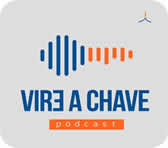Social learning theory of criminal behavior
Views: 619Keywords:
Criminology, Social learning, Differential associationAbstract
The article exposes Ronald L. Akers' social learning theory of criminal and deviant behavior. Explains its relations with Edwin H. Sutherland's theory of differential association. The article presents its postulates, elements and the hypotheses in relation to the criminal recidive. In the end it briefly presents the theory of social structure and social learning of crime, also formulated by Ronald L. Akers.
Downloads
Publication Facts
Reviewer profiles N/A
Author statements
Indexed in
- Academic society
- Instituto Brasileiro de Ciências Criminais
- Publisher
- Editora Revista dos Tribunais (RT)
References
Referências
ADLER, Israel; KANDEL, Denise B. A cross-cultural comparison of sociopsychological factos in alcohol use among adolescents in Israel, France, and the United States. Journal of Youth and Adolescence, v. 11, n. 2, 1982.
AGUIAR, João Serapião. Aprendizagem observacional. Revista de Educação PUC - Campinas, v.3, n. 5, novembro de 1998.
AGUIAR, Julio Cesar de. Teoria analítico-comportamental do direito. Porto Alegre, Nuria Fabris, 2017.
______ O direito como sistema de contingências sociais. Revista da Faculdade de Direito da UFG, v. 37, n. 2, 2013.
ANDREWS, D. A.; BONTA, James. The psychology of criminal conduct. 5. ed. New Providence: Anderson Publishing, 2010.
AKERS, Ronald L. Social learning and social structure: a general theory of crime and deviance. New Brunswick: Transaction Publishers, 2010.
______ et al. Social learning and deviant behavior: a specific test of a general theory. American sociological review, v. 44, 1979.
______ et al. Social learning theory and alcohol behavior among the elderly. The Sociological Quarterly, v. 30, n. 4, 1989.
ANITUA, Gabriel Ignacio. Histórias dos pensamentos criminológicos. Rio de Janeiro: Revan, 2008.
BAUM, William M. Compreender o behaviorismo. 3. ed. São Paulo: Artmed, 2019.
BOERINGER, Scot B.; SHEHAN, Constance; AKERS, Ronald L. Social contexts and social learning in sexual coercion and agression: assessing the contribution of fraternity membership. Family Relations, v. 40, n. 1, 1991.
BURGESS, Robert L.; AKERS, Ronald L. A differencial association-reinforcement theory of criminal behavior. Social Problems, v. 14, n. 2, 1966.
CARPENTIERI, J. R. História crítica do direito penal. Porto Alegre: Sérgio Fabris, 2012.
COCHRAN, John K. et al. Using structural equations to model Akers' social learning theory with data on intimate partner violence. Crime & Delinquency, v. 63, 2015.
CRESSEY, Donald R. Epidemiology and individual conduct: a case from criminology. The pacific sociological review, v. 3, n. 2, 1960.
CULLEN, Francis T. et al. What correctional treatment can tell us about criminological theory: implications for social learning theory. Social learning theory and the explanation of crime. New York: Routledge, 2017.
FOX, Kathleen A.; NOBLES, Matt R.; AKERS, Ronald L. Is stalking a learned phenomenon? An empirical test of social learning theory. Journal of Criminal Justice, v. 39, 2011.
GONGAWARE, Timothy B.; DOTTER, Daniel. Developing the criminal self: Mead's social psichology and Sutherland's differential association. Sociological spectrum, n. 25, 2005.
GUADALUPE, Thiago de Carvalho. Violência nas escolas: testando teorias de controle social. Tempo da Ciência, v. 19, n. 37, 2012.
GUNTER, Whitney D. Piracy on the high speeds: a test of social learning theory on digital piracy among college students. Journal of Criminal Justice Sciences, v. 3, 2008.
HENDERSON, Brandy Barenna. Exploring the interactive effects of social learning theory and psychopathy on serious juvenile delinquency. 109 f. Dissertação (PhD em Criminologia). University of South Florida, 2015.
HWANG, Sunghyun; AKERS, Ronald L. Parental and peer influences on adolescent drug use in Korea. Asian Criminology, v. 1, 2006.
JEFFERY, C. R. Criminal behavior and learning theory. Journal of criminal law and criminology, v. 56, 1965.
JONES, Stephen. Criminology. 5. ed. Oxford: Oxford University Press, 2013.
MACKENZIE, Doris Layton. What works in corrections. Cambridge: Cambridge University Press, 2006.
MAÍLLO, Alfonso Serrano. Introdução à criminologia. São Paulo: Revista dos Tribunais, 2008.
MATSUEDA, Ross L. The current status of differential association theory. Crime & Delinquency, v. 34, n. 3, 1988.
PEARSON, Frank S. et al. The effects of behavioral/cognitive-behavioral programs on recidivism. Crime & Delinquency, v. 48, n. 3, 2002.
PIQUERO, Nicole Leeper; TIBBETTS, Stephen G.; BLAKENSHIP, Michael B. Examining the role of differential association and tecniques of neutralization in explaining corporate crime. Deviant Behavior, v. 26, 2005.
PRATT, Travis C. et al. The empirical status of social learning theory: a meta-analysis. Justice Quartely, v. 27, 2009.
QUINNEY, Richard; DE FLEUR, Melvin. A reformulation of Sutherland's differential association theory and a strategy for empirical verification. The journal of research in crime and delinquency, v. 3, n. 1, janeiro de 1966.
SELLERS, Christine S.; COCHRAN, John K.; WINFREE JR., Thomas. Social learning theory and courtship violence: an empirical test. In: AKERS, Ronald L.; JENSEN, Gary F. Social learning theory and the explanation of crime. New York: Routledge, 2017.
SILVA, Benedicto (Coord.). Dicionário de ciências sociais. Rio de Janeiro: Editora da Fundação Getúlio Vargas, 1986.
SKINNER, William F. et al. Social influences and constraints on the initiation and cessation of adolescent tobacco use. Journal of Behavioral Medicine, v. 8, n. 4, 1985.
______; FREAM, Anne M. A social learning theory analysis of computer crime among college students. Journal of Research in Crime and Delinquency, v. 34, n. 4, 1997.
SUTHERLAND, Edwin H.; CRESSEY, Donald R. Criminology. Philadelphia: J. B. Lippincott Company, 1978.
VIANA, Eduardo. Criminologia. 5. ed. Salvador: JusPodium, 2018.
WARR, Mark. Age, peers, and delinquency. Criminology, v. 31, n. 1, 1993.
Downloads
Published
How to Cite
Issue
Section
License
Os direitos autorais dos artigos publicados são do autor, com direitos do periódico sobre a primeira publicação.
Os autores somente poderão utilizar os mesmos resultados em outras publicações indicando claramente este periódico como o meio da publicação original. Se não houver tal indicação, considerar-se-á situação de autoplágio.
Portanto, a reprodução, total ou parcial, dos artigos aqui publicados fica sujeita à expressa menção da procedência de sua publicação neste periódico, citando-se o volume e o número dessa publicação. Para efeitos legais, deve ser consignada a fonte de publicação original.



 Português (Brasil)
Português (Brasil)
 English
English
 Español (España)
Español (España)







